Hawthorne Workers’ Compensation Attorney
Employers in Hawthorne are required to carry workers’ compensation insurance. This is to protect both employees and employers if an employee suffers an injury at work. A workers’ compensation claim provides coverage for medical bills, lost income, and disability benefits for all eligible employees. Ideally, your employer is helpful through this claims process. However, some employers will engage in underhanded or illegal behavior to deny your claim. If you need legal counsel against a dishonest employer or a difficult claim, you need a workers’ compensation attorney.
Providing Representation for Hawthorne Workers’ Compensation Claims
When you are faced with a demoralizing injury and a lengthy legal process, you need effective and reliable legal counsel. At Pratt Law Corporation, we have over 60 years of experience defending the rights of California’s workers. We can help you calculate the complete scope of your damages from your injury. Often, injured workers fail to consider the long-term impacts of their injuries and do not receive the compensation they deserve. We analyze your case to find any of your employer’s failings. Our attorneys can also help you determine if you should file a third-party personal injury claim alongside a workers’ compensation claim. It is important to us that we help you through these procedures and work to maximize your benefits.

Common Workers’ Compensation Claim Injuries
Workers’ compensation injuries are not only the result of sudden and serious accidents on the job. They can also be caused by repetitive motion injuries or medical conditions that are the result of a person’s job duties. These slow-developing injuries and illnesses can also lead to a workers’ compensation claim. The most common workplace injuries in the state include:
- Soft-Tissue Injuries Such as Sprains and Strains: This may be the result of repetitive lifting movements, extremely heavy lifting, or awkward postures while on the job. Injuries to muscles, tendons, and ligaments can be painful and require time to heal or even surgical correction. Some soft tissue injuries can cause permanent pain and a lowered range of motion if they are ignored.
- Repetitive Motion Injuries: Employees who repeat a similar motion each day during their work can develop repetitive motion injuries. Typists or office workers may develop carpal tunnel syndrome or other motion injuries in the fingers, hands, and wrists. Many people do lifting or other motions consistently throughout their work day, like assembly line work or package transport. These workers may develop these injuries in their backs, shoulders, necks, knees, and feet. Such injuries can cause damage to muscles and nerves. They can eventually lead to pain and a lowered range of motion if left untreated.
- Traumatic Brain Injuries and Head Injuries: Brain injuries can be hard to assess as their symptoms can sometimes be delayed. They may be caused by slips and falls, falling objects, or a collision with a large object. If an employee suffers an injury, or is in an accident where their head is struck, it is vital to keep an eye on the short- and long-term effects.
- Back and Spine Injuries: This may be caused by repetitive motions or a sudden strain. Spine injuries are when the ligaments, muscles, or spine discs are damaged. These can be very painful. If ignored, these injuries can lead to permanent disability.
- Catastrophic Traumatic Injuries: This is the result of a sudden and severe workplace accident, including machinery malfunctions and accidents, explosions, and car accidents. They can lead to cuts, lacerations, fractures, broken bones, crushing injuries, amputations, burns, spinal injuries, and traumatic brain injuries. Some of these injuries can lead to lifelong pain and suffering.
- Occupational Illness: Employees who are exposed to harmful and hazardous chemicals and other substances may develop illnesses from them. Chemical exposure may lead to respiratory illnesses and even cancer.
These are not the only injuries that may qualify workers for a claim. When you suffer injuries and illnesses from performing your job duties, you deserve compensation.
Why Do You Need a Hawthorne Workers Compensation Attorney?
If you have suffered a workplace injury, the last thing you want to worry about is managing your claim. This process involves complex legal filings, evidence gathering, and meeting the necessary deadlines. A workers’ compensation attorney can take care of this work for you. They can help you efficiently and accurately complete forms and submit them. Attorneys also have significantly more resources than you do to find the necessary evidence to support their claim. This can give you an advantage when negotiating with the insurance carrier. Having legal counsel can increase the total benefits you receive.
If your employer is resisting or denying your claim, or retaliating against you for filing one, an attorney is a necessary asset to protect your rights. Retaliation is illegal, and your employer must provide you with the necessary forms for filing workers’ compensation.
If the insurance provider refuses your claim, or will not negotiate an amount that covers your damages, your attorney can defend you during litigation. Since you have already worked with them throughout the insurance negotiation process, they are already familiar with your situation and can advocate for your rights.
When Should You Consult a Workers’ Compensation Lawyer?
Although hiring a workers’ comp lawyer is a good plan, there are some situations where you should contact an attorney immediately after you suffer your injury:
- Your employer claims you are ineligible for workers’ compensation despite being a covered employee. Misclassification of employees is illegal but common.
- Your employer does not have workers’ compensation insurance. You may have to pursue other methods to receive compensation.
- The doctor who examined you fails to thoroughly evaluate your injury and dismisses your worries and requests. You might also disagree with their opinion regarding your work capabilities.
- Your employer claims the injury is not from the workplace. This is common when you had a condition prior to beginning work that was worsened by performing your job duties.
- Your injury was the result of your employer’s negligence.
- Your employer intentionally endangered their employees.
- Your injury means you are no longer able to perform the duties of your previous job.
- Your symptoms were delayed. Repetitive motion injuries, traumatic brain injuries, and occupational illnesses all tend to have a delayed impact on employees.
- You are suffering workplace stress or emotional damage.
- Your employer retaliates against you by demoting you, firing you, lowering your pay or benefits, or giving you unfavorable job duties.
- The insurance company is unwilling to pay you for all the damages you deserve. They might also delay your benefits.
- You are receiving workers’ comp benefits and are asked to complete an independent medical evaluation. This is often done to unfairly lower your benefits.
The Workers’ Comp Benefits Claim Process
If you receive an injury while at work or on the job, you should inform your supervisor immediately. You should also seek medical attention if you need it. If you can, request the necessary claim forms from your supervisor. These are the forms you will submit to your employer and their insurance provider. Your employer is obligated to act in good faith when providing you with these materials.
If you are able, also request a list of insurance-approved doctors from your employer when seeking treatment. If it is an emergency, any available doctor is fine. You just need to seek an approved doctor when your disability rating is more stable. This rating will depend on how serious your injury is and how long it may affect you. This is what the insurance company uses to determine what your claim compensation should be. Unfortunately, many insurance providers will look for any reason to lower the benefits they initially offer you. An attorney can negotiate to maximize the benefits you receive.
What Types of Issues Are Not Covered by Workers Compensation?
While most injuries suffered on the job are covered by workers’ compensation, there are some situations where they are not. This includes injuries suffered:
- While you were committing a crime
- Because of your conduct that was against company policy
- While you were under the influence
- When you were not on the job
- From an unpredictable event such as a natural disaster
- From a common illness
- That were pre-existing conditions from before you worked
- That can be treated with simple first aid
Talk with a workers’ compensation attorney to determine if your circumstances qualify your injury for workers’ comp.
How Do You Counteroffer a Workers’ Compensation Settlement?
The first step in negotiating a settlement is determining the total damages suffered. You want to include medical bills and lost income. You also want to factor in lost earning capacity if you can no longer do your work or do it as well. It is also vital to include the costs of any future medical complications that may come from your injury or illness. Your attorney can help with this calculation. They can also ensure that you do not underestimate the damages caused.
Then you send a notice to the insurance provider with this amount. They will accept it or provide you with a counteroffer. Your attorney can determine if this counteroffer is fair or if further negotiation is in your interests. An attorney is an invaluable asset during negotiations. You have a much better chance of receiving higher compensation with their help.
How Much Is the Average Workers’ Compensation Case Settlement?
Workers’ compensation damages depend on many factors. They may range anywhere from $2,000 for a claim to $40,000 or more. The damages you receive depend on:
- The type of injury
- The severity and complexity of your injury
- How much the injury impacts your job duties
- The length of time your injury will disable you for
- Any expected future complications
- Your income, if your compensation includes lost income
Workers’ compensation could cover retraining if you need to begin working in a new field due to your injury.
Understanding Temporary and Permanent Workers’ Disability Benefits
Depending on your injury, your claim may provide you with temporary or permanent disability benefits. This will also impact the amount of your settlement.
- Temporary Disability Benefits: This is a common result of a workers’ compensation claim. These benefits are made in 104 payments that can last as long as five years. They are ⅔ of your average weekly wage. How long you receive these benefits depends on how disabling your injury is. If you return to work, either part-time or in a different position, you may be able to receive partial disability benefits.
- Permanent Disability Benefits: This form of compensation is given to employees who have suffered catastrophic and traumatic injuries. These injuries prevent them from ever returning to work. These benefits are also ⅔ your weekly wage and last for the long term, or even the rest of your life. If you receive permanent disability benefits, you will likely transition to Social Security disability benefits.
Can You Sue Your Employer After a Workplace Injury?
In most situations, workers’ compensation protects employers from being sued. If they have workers’ comp insurance, that is how you receive compensation for your injury, and you cannot sue them. However, you can sue your employer if:
- They do not have workers’ compensation insurance, which is required for every employer with at least one employee.
- They illegally concealed information regarding your workers’ comp claim.
- They intentionally caused your injury.
In these situations, you are likely permitted to sue them. Discuss your specific situation with a personal injury and workers’ compensation attorney. They can determine if you have grounds for a claim.
If your employer retaliates against you for filing the claim, or otherwise interferes illegally, you can file a retaliation claim against them. If your employer wrongfully terminates you because you filed a claim, you can file a wrongful termination claim.
In some situations, you can file a workers’ comp claim and a personal injury claim against a third party. The third party may have been the person who caused the accident. They might be the manufacturer or designer of a defective or malfunctioning product that caused your injury. This third-party claim may account for damages that a workers’ compensation claim does not cover.
Your Hawthorne Workers’ Compensation Attorneys
Pratt Law Corporation can provide the legal assistance you need while you recover from your injury. We provide comprehensive legal counsel for your workers’ compensation claim. Our firm can also represent you if you are dealing with retaliation from an employer after receiving your benefits. Contact our team today to see how our experienced workers’ compensation attorneys can help you.




